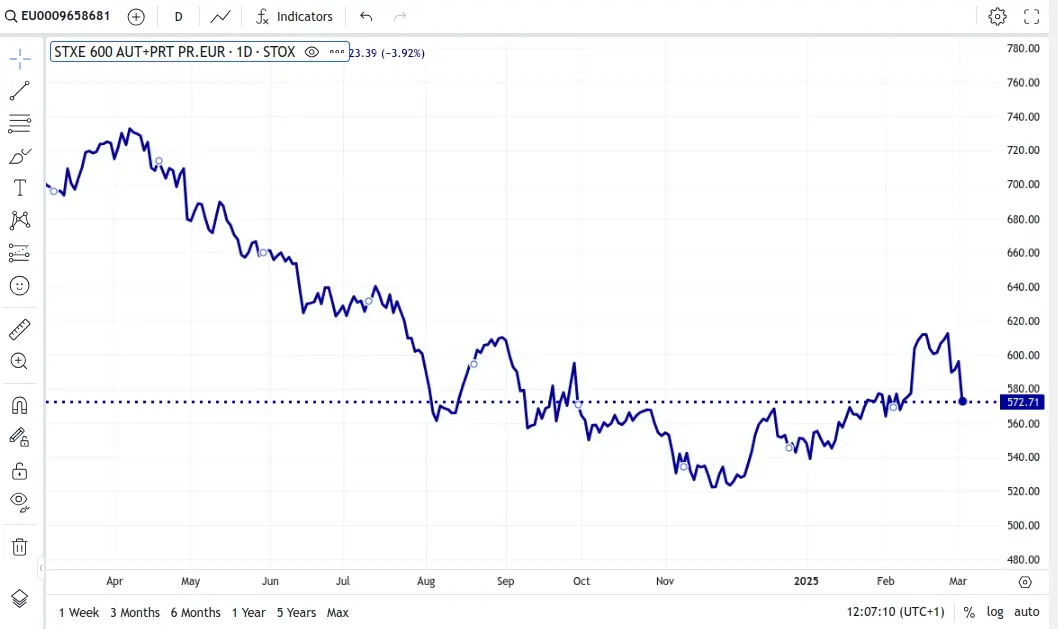Key moments
- European carmakers and automotive suppliers experienced a significant stock decline due to the implementation of 25% U.S. tariffs on imports from Mexico and Canada.
- The article shows a stark contrast between Tuesday’s sharp decline following the tariff news and Monday’s surge driven by the EU’s decision to provide carmakers with flexibility on emissions targets.
- European automakers faced challenges in meeting 2025 emissions goals due to a slowdown in EV sales.
U.S. Tariffs Trigger Sharp Drop in European Auto Stocks
European carmakers and automotive suppliers experienced a significant downturn on Tuesday, triggered by the implementation of 25% U.S. tariffs on imports from Mexico and Canada.
The STOXX Europe 600 Automobiles and Parts index (.SXAP) fell by 3.1%, reflecting the sector’s vulnerability to the newly imposed tariffs. Companies such as Volkswagen, Stellantis, BMW, and Continental AG, all with manufacturing facilities in Mexico, were particularly affected.
Data from Mexico’s automotive industry association revealed that Stellantis and the Volkswagen Group, including Audi, are the leading European exporters of light vehicles to North America from Mexico.
“Trump is now getting serious with his punitive tariffs against Canada and Mexico … The geopolitical situation is more fragile than ever,” noted investment strategist Juergen Molnar of RoboMarkets.

This decline in the SXAP index contrasts sharply with Monday’s surge, which followed the announcement that the EU would grant carmakers a three-year window to meet carbon dioxide emissions targets.
European Commission President Ursula von der Leyen announced that a targeted amendment to provide the auto sector with flexibility under the 2025 emissions rules would be proposed later this month. This adjustment would allow carmakers to potentially miss this year’s targets, provided they exceed them in the subsequent years.
On Monday, shares of European automakers, including Volkswagen AG, Mercedes-Benz Group AG, and Renault SA, saw substantial gains following von der Leyen’s remarks, propelling the Stoxx 600 Automobiles & Parts Index up nearly 3% during intraday trading.
European automakers had lobbied for changes to the 2025 emissions goals after a slowdown in electric vehicle (EV) sales last year, which made it increasingly challenging to meet the targets and risked billions of euros in fines. They could have mitigated some of these penalties by pooling sales with carmakers further advanced in the EV transition, but concerns were raised about unduly benefiting companies like Tesla Inc. and Chinese manufacturers.





